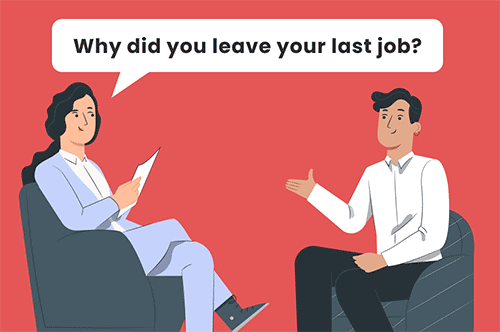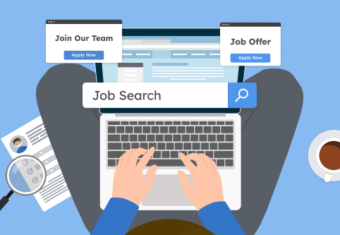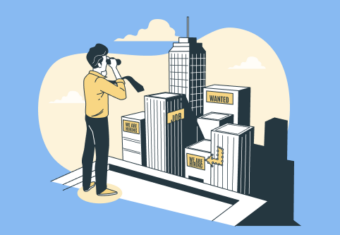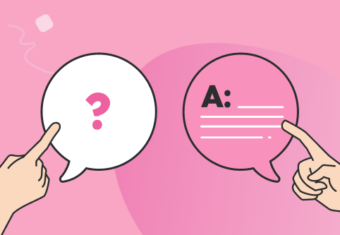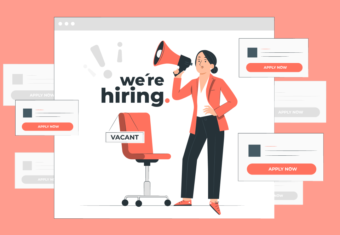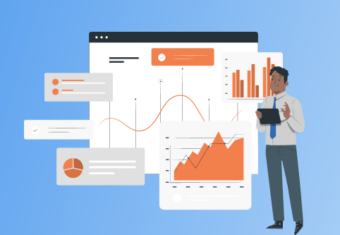“Why did you leave your last job?” is a common interview question you’re likely to run into while searching for a job.
Although straightforward, this question can be tricky to answer, especially if you left your employer on poor terms. However, with a little preparation, you can give a professional response that will highlight your strengths as a candidate while avoiding potential red flags.
Why do interviewers ask your reason for leaving a job?
Interviewers often ask this question to get more information about your past work experience and how it may relate to the position you’re interviewing for.
Like with the interview prompt “tell me about a time you failed,” interviewers may also be looking for any alarming signs of misconduct or a poor employment record. That’s why it’s important that you approach this question carefully so that you can provide a positive response that doesn’t raise any concerns.
“Why did you leave your last job?” best example answers
It’s a good idea to think carefully about your reasons for leaving your last job and to choose the one that reflects positively on you as a potential employee. Let’s look at some example answers to help you craft your own:
1. I’m looking for an opportunity to advance my career
“I left my job because I was looking for an opportunity to advance my career in a field that better aligns with my skills and interests. My previous employer wasn’t able to offer me the type of growth I was looking for, but I’m confident that your company can help me reach my professional goals.”
This is a good answer because it shows that you’re a motivated and ambitious worker who is always looking to improve your skills and advance your career. It also highlights your positive attitude and commitment to professional growth, which can make you a great asset to any company.
2. My role became redundant and I was laid off
“I left my job because my role became redundant due to my company’s restructuring and I was laid off. This was a very difficult time for me, especially with how the economy has been lately, but I’m confident that my experience in the industry and strong work ethic will allow me to succeed in this position.”
Nobody wants to be laid off, but it’s an unfortunate reality of the job market. This answer gives context to the uncomfortable position of being laid off.
Interviewers are well aware of how mass layoffs can surprise even the hardest-working professionals and interrupt their careers. Just be sure to highlight your qualifications and ability to handle difficult circumstances while ending on a positive note.
3. I want to change careers
“I left my job because I want to pursue a new field that I’m passionate about. My previous employer wasn’t able to offer the types of opportunities that allow me to fully use my skills, but I believe that your company can help me grow and succeed in this new career path.”
If you’re a career-driven professional who’s always looking to improve and grow across industries, be sure to highlight that ambition. This answer shows your willingness to take risks and actively pursue your goals, which many employers appreciate.
If you’re making a big career change, you should also submit a career change cover letter to employers to show them that you’re dedicated to moving in a new direction with your talents.
4. I was let go
“I was, unfortunately, let go from my previous job because of poor performance in the last quarter. In hindsight, I believe that neither the role nor the company culture was a good fit. I did, however, take the time to learn about my weaknesses in those last few months and took active steps to improve on them. I’m confident I have the required qualifications for the role and would be an excellent addition to the team.”
Unfortunately, telling a potential employer that you were fired from your last job will probably negatively impact your chances of getting the job no matter what you do. But it’s important to be honest and keep your answer positive.
By approaching the topic carefully (like in the answer above), you can show employers that you’re resilient and self-aware and that you’re taking steps to improve on your weaknesses.
If you got fired from your last job, it’s important to show interviewers that you’re willing to take responsibility for your actions and learn from them. Focus on what you’ve learned from the experience and how you’ve improved as a professional and be sure to provide concrete examples that show you’re a strong employee.
5. I want something more challenging
“I left my job because I was looking for something more challenging. Having stayed three years in my last company, I recently realized I’d hit a ceiling and there were no further opportunities to grow my skill set. I believe that this new position is a great fit because it’ll allow me to capitalize on my strengths and further enhance them while expanding my responsibilities.”
This is a great answer to emphasize that you have the drive to learn and keep challenging yourself.
This answer also highlights how you’re looking for new opportunities to grow and progress, which makes a great case for hiring you because employers are always looking for self-motived employees. Just be sure that you can back up these statements with tangible examples of your accomplishments and how you see yourself meeting the challenges of your new role.
How to answer “why did you leave your job?” in an interview
Now that you’ve seen some strong example answers for “why did you leave your job?”, it’s time to learn how to craft your own response.
There are a number of different reasons why you may have left your previous job or want to leave your current job. When answering this question in an interview, it’s essential to always be honest and stay positive when discussing your previous or current employer.
Be diplomatic and avoid any negative remarks or slandering your previous employers or coworkers, even if your reason for leaving is a toxic workplace.
Be upfront about your reasons
Whether you’ve been unemployed for a while or you’re a job hopper, the best approach when responding to “why did you leave your last job?” is to be truthful.
While it may be tempting to lie or try to cover up the reasons you left your last employer, it’s easy for hiring managers to verify if your statements check out. If they decide to do a background check or call your previous employer for more information, you’ll likely be caught lying, which will end any chance you had of being hired for the job.
Some other key strategies to keep in mind when answering this question are to emphasize your motivation, drive, and work ethic, as these qualities are always important to employers. This helps focus the interviewer’s attention on what you have to offer.
Speak positively about your previous employer
Even if you left your previous job on bad terms, always speak positively about your former employer.
The person interviewing you doesn’t know anything about your previous workplace, and they probably aren’t interested in learning about it. What the interviewer wants to know about is you, and if the first thing you do is rant about your last job, the only thing the interviewer will take away from your response is that you’re negative.
This is also valid if you’re currently employed and answering the similar question “why are you leaving your current job?”
Even the worst jobs have some positive aspects that you can focus on during your interview. For example, if the people you worked with were difficult in the workplace, focus instead on what you learned at the company.
On the other hand, if you have better things to say about your manager or your team members, discuss how well you cultivated your professional relationships and what you’ve learned from them.
You’ll want to end your answer by focusing on what you learned from your previous experience as a whole, your future goals, and your ambitions. Highlight why you believe this new role is the perfect fit for your skills and experience. After all, the interviewer is interested in seeing what kind of potential employee you would be.
Unsure how you can answer this tricky interview question about leaving your last job? Check this TikTok video for a few tips and a sample answer:
@resumegenius Learn more about how to answer this interview question at resumegeniusDOTcom/blog/interview/why-did-you-leave-your-last-job #interviewtips #interviewquestions #careeradvice #jobsearchtips ♬ Storytelling – Adriel
Other interview resources
Be ready to impress hiring managers with well thought-out responses to whatever questions they might ask. Take a look at the resources below to help you get started:
- How to introduce yourself in an interview
- How to answer “tell me something that’s not on your resume”
- Sample answers to “why are you leaving your current job?”
- How to answer “walk me through your resume”
- “What do you like least about your job?” guide and sample answers
- How to answer “what makes you unique?”
- Top interview tips
Click to rate this article
4.9 Average rating


